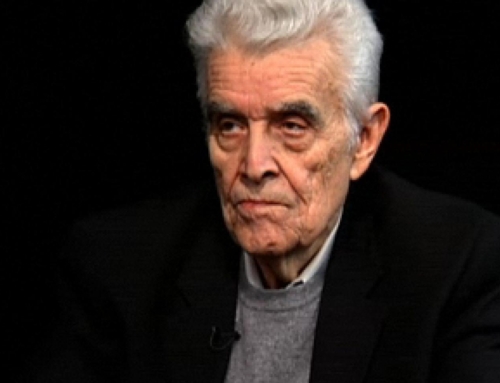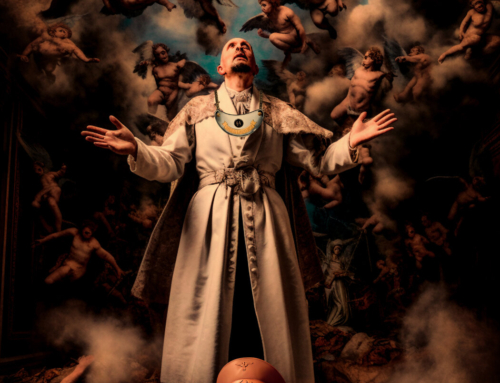I’m reading The Meaning of Jesus- Two Visions by Marcus J. Borg and N.T.Wright. Borg is a liberal Biblical scholar, Wright is more conservative. It’s a good book, and one I’d recommend to anyone who wants to understand the liberal Christian point of view and the conservative Biblical perspective. Borg and Wright are respectful. Both write well and the book is accessible to a wide audience.
One of the things that caught my attention was Borg’s personal story. Much like Bart Ehrman and many others, he was brought up in conservative, Sunday School going church that was pretty much fundamentalist. As he became more educated, the literalist, verbal inerrancy, 100% accurate understanding of the Scriptures began to crumble. As he studied in more depth and discovered Biblical scholarship, his Sunday School faith morphed into a fairly typical, “the Bible is a collection of beautiful stories. Let’s focus on their true meaning rather than the historical dimension.”
This “mythological” approach goes back to Reimarus, David Strauss and the whole gaggle of Protestant theologians and Biblical scholars from the seventeenth and eighteenth centuries down to Schweitzer, Bultmann and what has now become a kind of Christian denomination of its own: The United Church of Biblical Criticism. Like any denomination they have their leaders and heroes. They also have their orthodoxies, their dogmas and their ways of excommunicating heretics. If you don’t believe me, try undermining their pet theories and you’ll be shown the door and have it slammed behind you pretty securely. Contradict the prevailing liberal assumptions and you’ll be ridiculed, dismissed, ignored and sent to Nebraska to teach Sunday School.
I have been pondering for some time how this came about, and it is certainly one of the fruits of the so called Enlightenment with its rationalistic approach. However, I believe the roots of the rot are even deeper. I think, in a peculiar way, it is rooted in the Protestant dogma of sola Scriptura –the Bible alone. The Protestant Revolutionaries intended sola Scriptura to be a belief about church authority. The Bible was to be the only source for doctrine and life. Church traditions were thrown out.
However, like most dogmas took on a life of its own. A dogma, especially if it a foundational dogma, becomes not just an abstract theory or belief, but a way of life. It determines a whole world view. Take, for example, the Catholic dogma of the Infallibility of the Pope. This is meant to be a limited dogma defining how and why the successor of Peter exercises supreme authority in the church. OK. But what is the effect in the long run? The Catholic Church becomes the Pope. The Pope IS the Catholic Church for many and Catholics begin to view everything through Vatican eyes.
The same thing happened with sola Scriptura. Because the Bible was the only authority in matters of religion it soon became not only the sole authority but the only book that mattered. Being brought up in a fundamentalist world myself, I can remember how we had “Bible Churches”. “Bible Camps and “Bible Colleges”. Social events were Bible studies and we memorized Bible verses and had Bible games and flashcards. That is all well and good, but my point is that sola Scriptura created an atmosphere in which the Bible was the only authority in all matters. One went to the Bible to find the answers. If it was in the Bible it had to be 100% true, word for word, no room for human error, mistakes or historical discrepancies. Sola Scriptura became a monolithic, all encompassing worldview. It had to be watertight and defended rigorously or the whole house of cards would come tumbling down.
The worst thing about this distortion is that it is unconscious. The last thing the fish sees is the water. Who stops to examine their basic assumptions and presuppositions? Furthermore, it was this unconscious sola Scriptura worldview that was the background atmosphere for the first generation of Biblical critics and those who came after them. Their scholarship was most often based only on the text of the Bible, and their reading of the text was fundamentalist–that is “every story was absolutely 100% historical.” When that clashed with other historical or scientific discoveries they had a genuine crisis of faith. They then swung to the other extreme concluding that none of it was historical. Because they discerned mythological elements and enlightenment empiricism taught them that miracles were impossible they dismissed the historicity of the Bible stories completely.
Their response to this was, on the one hand, to take refuge in the liberal view that “these stories may not be historically true, but they are beautiful, meaningful fables from which we can all learn how to be nicer people.” On the other hand, (still being locked into a sola Scriptura mindset, they devoted themselves to dig more deeply into the Bible and to analyze it even further.
To my mind this was a kind of sickness. Have you ever thought about this? Why do the Biblical critics continue– generation after generation– to continue to examine the origins of the Biblical text, and come up with more theories about who Jesus really was, who really wrote the Bible, what it really means and so forth and so on. This obsession with the Bible and its origins, its texts and its details indicates a continued devotion not to the explicit dogma of sola Scriptura but to the religious atmosphere and underlying mindset of “Bible alone.”
I discovered another angle on this when I was researching my book The Mystery of the Magi on the historical background of the wise men in the Nativity story. Time and again the Biblical scholars would make an assertion or propose a theory which revealed that, while they knew a lot about the Biblical text and the clutter of Biblical scholarship surrounding it, they knew next to nothing about the history, politics, economics, geography and customs of the ancient world in Jesus’ time. Their comments were based on superficial Sunday School understandings of the historical and cultural background. Their conclusions were based on second or third hand, out of date understandings which they had accepted uncritically. Why was this? I suggest it was because they were operating in an unconscious atmosphere and context of sola Scriptura. The Biblical text was all they were looking at.
Others were simply not interested in the possibility that the wise men could have been historical figures, and this (most amazingly) was why no one had done the research into the story. As I researched the book I kept expecting to find that someone else had already written this book and had already dug into the background and put together the details and connected the dots. No one had. This is because the Biblical scholars were all poring over their critical theories of the text, and not paying attention to anything else. They were Bible alone Christians–giving the historical and cultural background of the text they were studying with only the briefest attention.
Of course I realize this is not true of all Biblical scholars. There are many people doing wonderful work on the interface between first century history and culture and the Bible. In our age fantastic new archeological and textual discoveries are being made all the time. However, too often these findings do not penetrate into the hallowed halls of Biblical scholarship academia. Instead, the assumptions and theories from the early twentieth century continue to be sustained by special pleading and an almost intentional sectarian dogmatism which is just as closed and exclusive as the fundamentalism the liberal scholars so abhor. This reaches its most absurd extreme when you find Biblical scholars who will prefer to hold to outdated early twentieth century liberal theories intentionally ignoring and dismissing archeological and cultural evidence that contradicts their theories.
What is the middle ground? In The Mystery of the Magi I suggest that we should read the Bible in an objective and critical way, but being aware of certain basic assumptions. Firstly, that sola Scriptura is a false, man made doctrine that has done more harm to the true interpretation of Scripture over the last 500 years than anything else. Second, if this is true, then while we hold to the canon of Scripture as the rule for doctrine and authoritative liturgy, we also read with interest all the other literature from the early church. Third, we assume that the earlier the literature–canonical and non-canonical–is the more it is in touch with the historical foundation of the stories being told. Fourth, although we assume there is a historical foundation to the stories we needn’t take a strictly fundamentalist, word for word accuracy for the stories. We can allow for human error in transmission. We can allow for elaboration of the stories over time. We can allow for theological agendas to have informed the selection of the stories and the way the stories are related.
With a balanced approach we can avoid both the extreme liberal position of dismissing virtually all historicity and the fundamentalist insistence that every word must be factually, historically accurate.







And, of course, we read Scripture in accordance with Sacred Tradition and the teachings of the Magisterium.